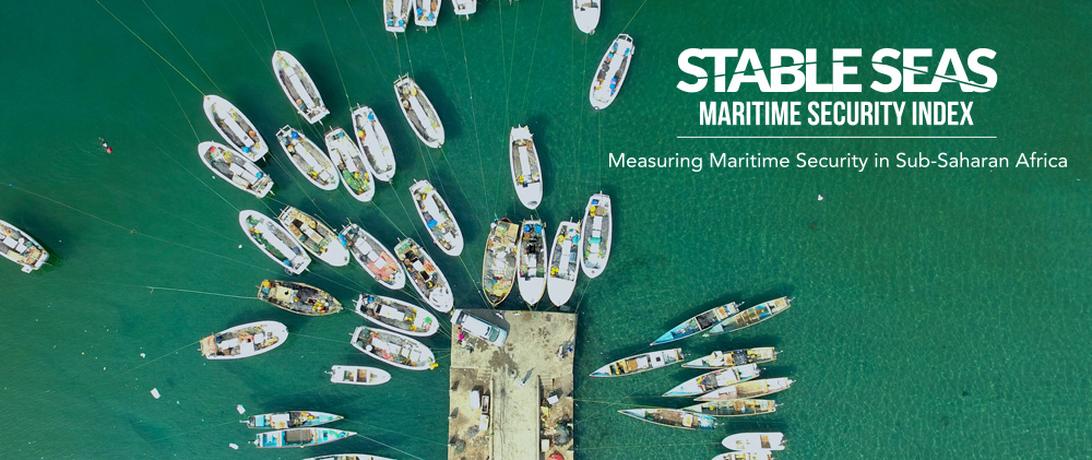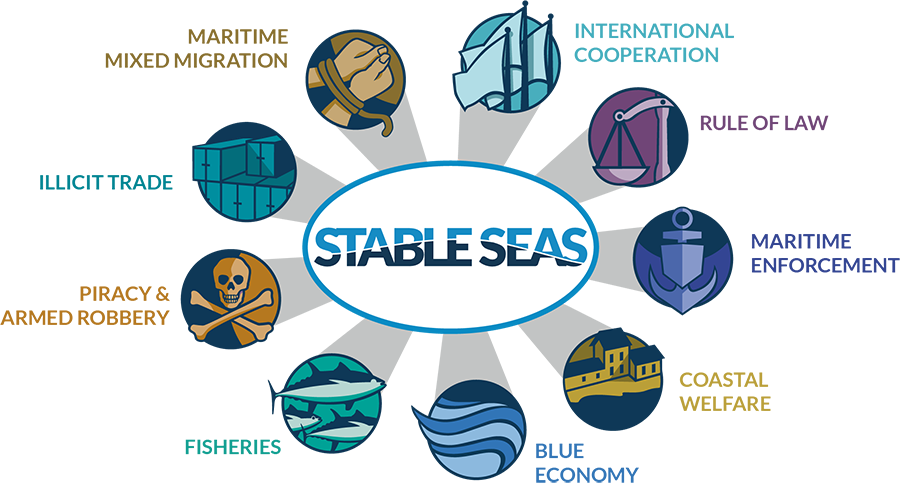
The world’s ocean coalition is increasingly recognizing that ocean health and human security are inextricably linked.
On October 5 and 6, the fourth Our Ocean conference will convene in Malta, home of the International Maritime Organization. This conference brings together heads of state, scientists, conservationists, entrepreneurs, students, and visionaries to address marine pollution, sustainable fisheries, climate change, and marine protected areas. During last year’s conference, countries committed $9.2 billion and 9.9 million square kilometers of ocean to these critical areas of action. This year, two new areas of action are on the agenda: maritime security and a sustainable blue economy. The world’s ocean coalition is increasingly recognizing that ocean health and human security are inextricably linked.
At Our Ocean, One Earth Future is proud to announce the inaugural version of the Stable Seas Maritime Security Index. Secure Fisheries joins two other OEF departments, Oceans Beyond Piracy and OEF Research, in this project. The Stable Seas Maritime Security Index is a first-of-its-kind effort to measure and map a range of threats to maritime governance in 30 countries across sub-Saharan Africa. By bringing diverse challenges like piracy, smuggling, and capacity-building into one comprehensive analysis, we can better understand how these issues intersect to affect maritime security.

We’ve defined nine different issue areas that are both causes and consequences of maritime insecurity. Here’s how fisheries factor into each issue area.
- International Cooperation: Ratification of the UN Fish Stocks Agreement and Port State Measures Agreement shows a country is dedicated to supporting international norms and governance around fisheries, especially highly migratory species.
- Maritime Enforcement: Countries with greater naval or coast guard capacity are better able to monitor their waters to reduce illegal, unregulated, and unreported (IUU) fishing and increase endangered species protections.
- Coastal Welfare: In Africa, artisanal and small-scale domestic fisheries employ over 5 million fishers, providing economic and food security in coastal areas. This improves community resilience and reduces the likelihood that instability escalates into violent armed conflict.
- Blue Economy: Fisheries and aquaculture are important and growing components of the Blue Economy, contributing over $6 billion to the African export economy in 2014. The sustainability of fish stocks is a pre-requisite for sustainable economic development.
- Fisheries: At sea, fisheries conflict can include violent attacks by foreign industrial vessels on domestic artisanal vessels; IUU fishing; forced labor and slavery; and territorial disputes between and within national borders. Fishing vessels can also be used to surreptitiously transport weapons, drugs, and other illicit goods. Fisheries therefore contribute directly and indirectly to maritime security by stoking territorial and resource-based conflicts and by providing food and income that reduce the root causes of conflict.
- Piracy and Armed Robbery: In some regions, like the Horn of Africa, fishing by foreign vessels has been blamed for the origins of piracy, and fishing vessels are frequently targets of pirate attacks.
- Illicit Trade: High-value species, like abalone in South Africa, are harvested and traded illegally; profits frequently enable global drug networks and violent armed groups.
- Maritime Mixed Migration: The fishing industry is implicated in human trafficking, especially in the Indian Ocean where horrifying reports of men being kidnapped or tricked into years of forced labor on fishing boats have been uncovered.
- Rule of Law: Where the rule of law is strong, governance norms enable enforcement of both domestic and international fisheries laws that are needed to promote healthy and sustainable fish stocks.
There is growing international consensus that ocean health and human health are interconnected, as are the threats to both. The Stable Seas Maritime Security Index is a first-of-its-kind data tool that will improve our understanding of maritime security and governance issues while highlighting stories of success and failure. Fisheries turn out to be a critical component of all dimensions of maritime security. Check out the Maritime Security Index for more information and future updates!
Article Details
Published
Topic
Program
Content Type
Opinion & Insights